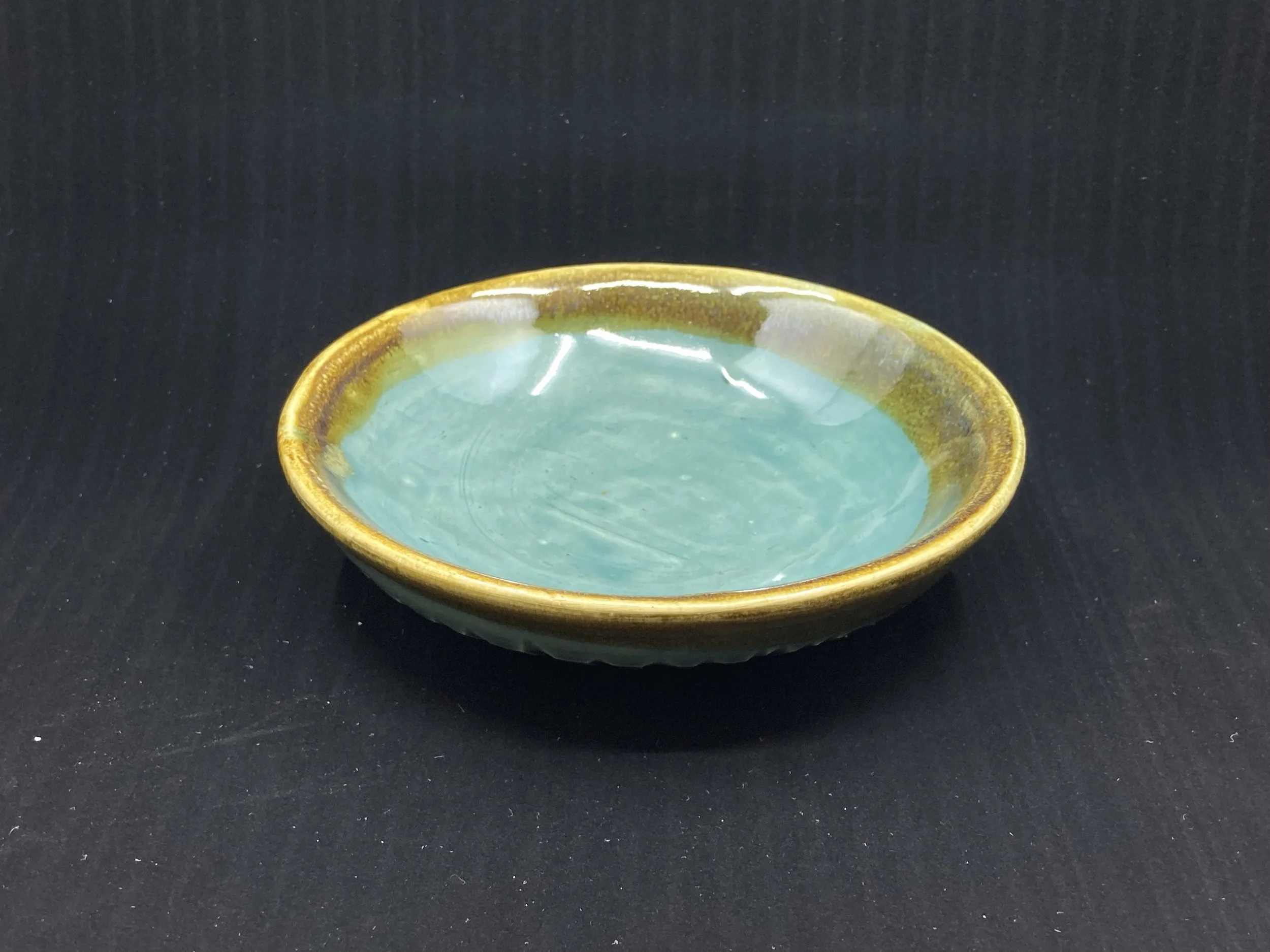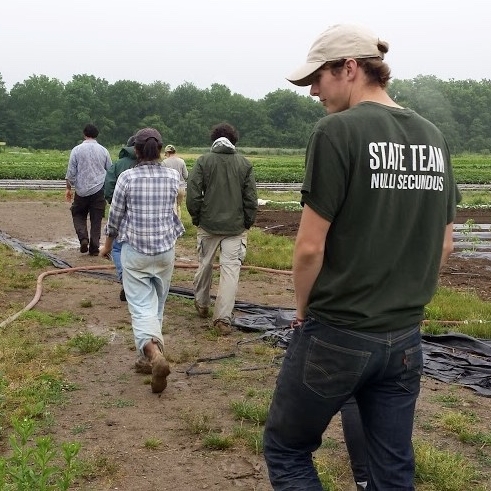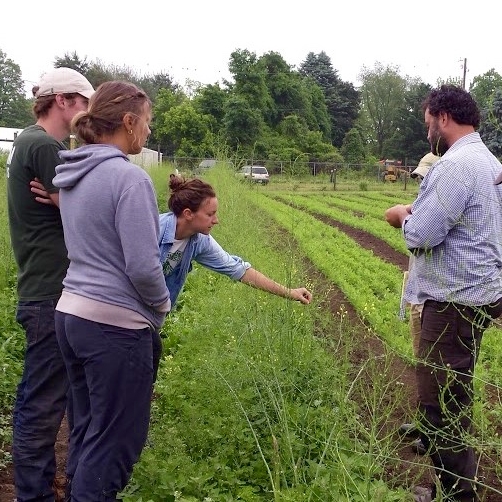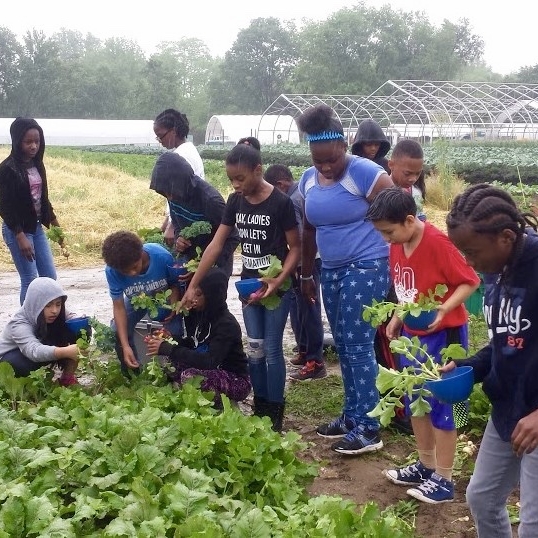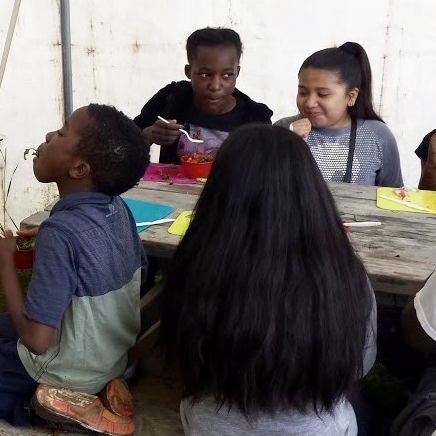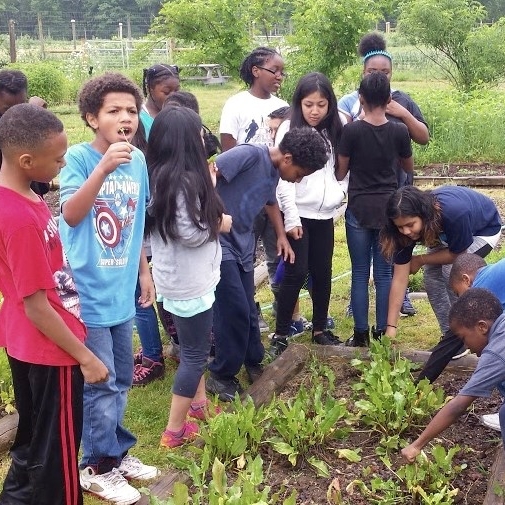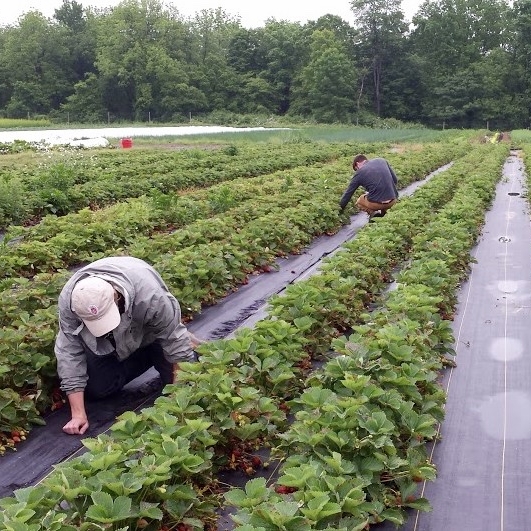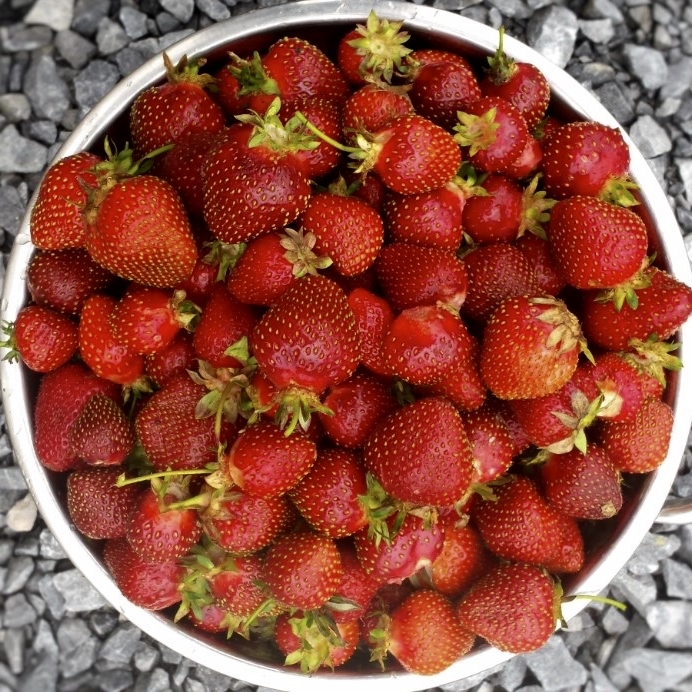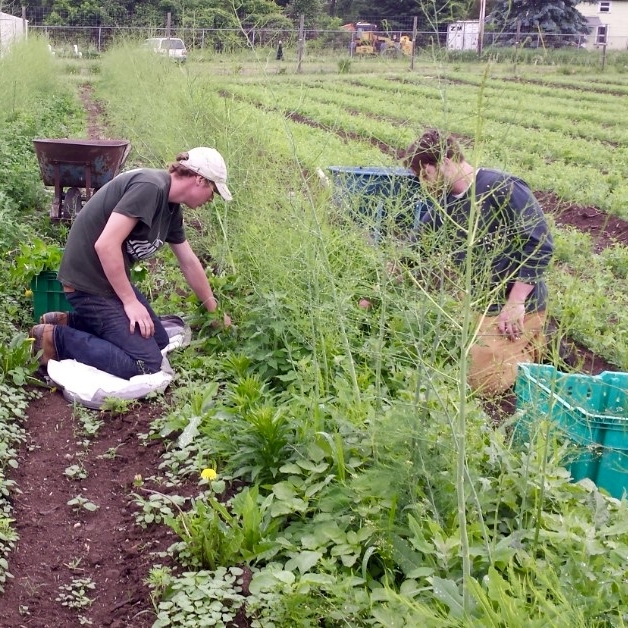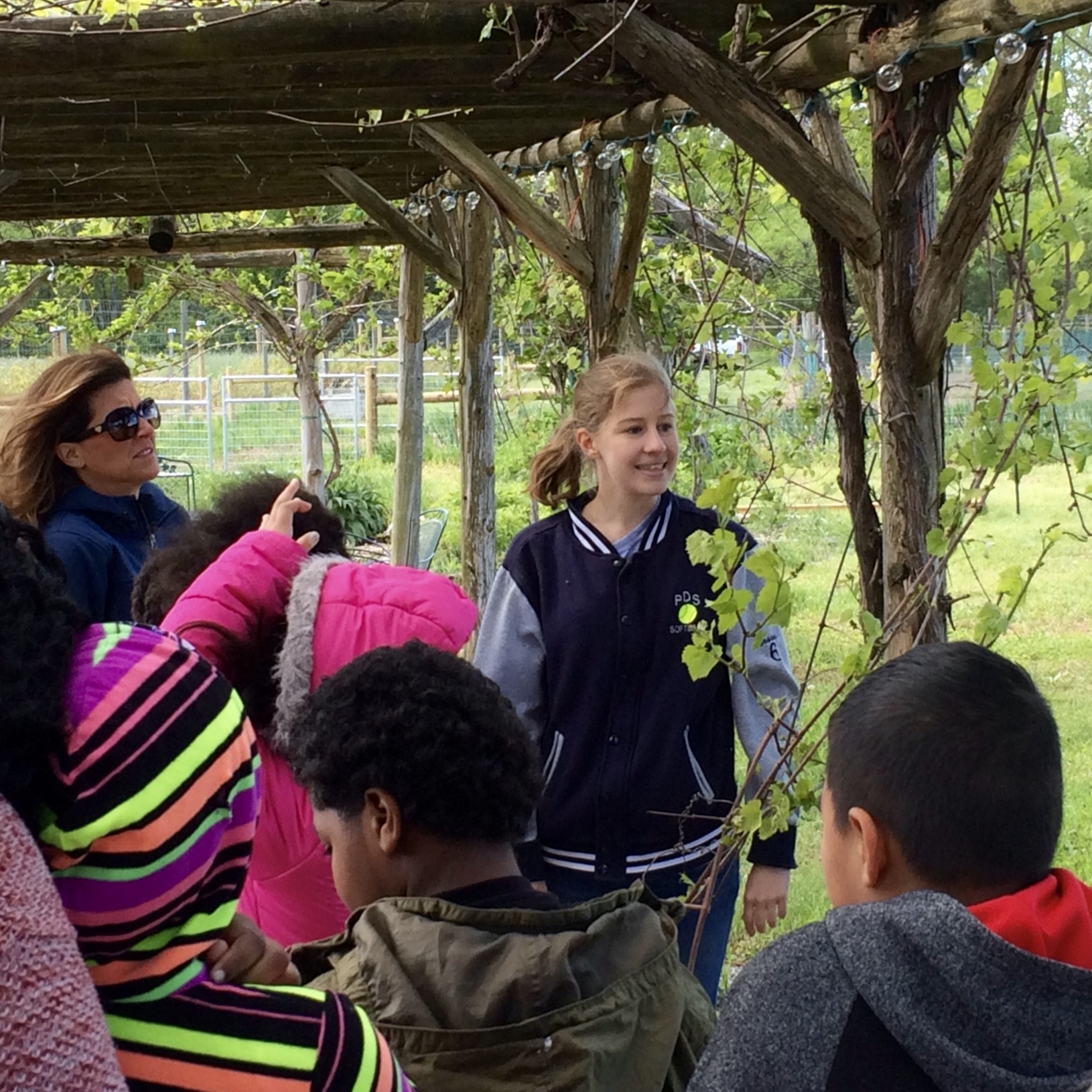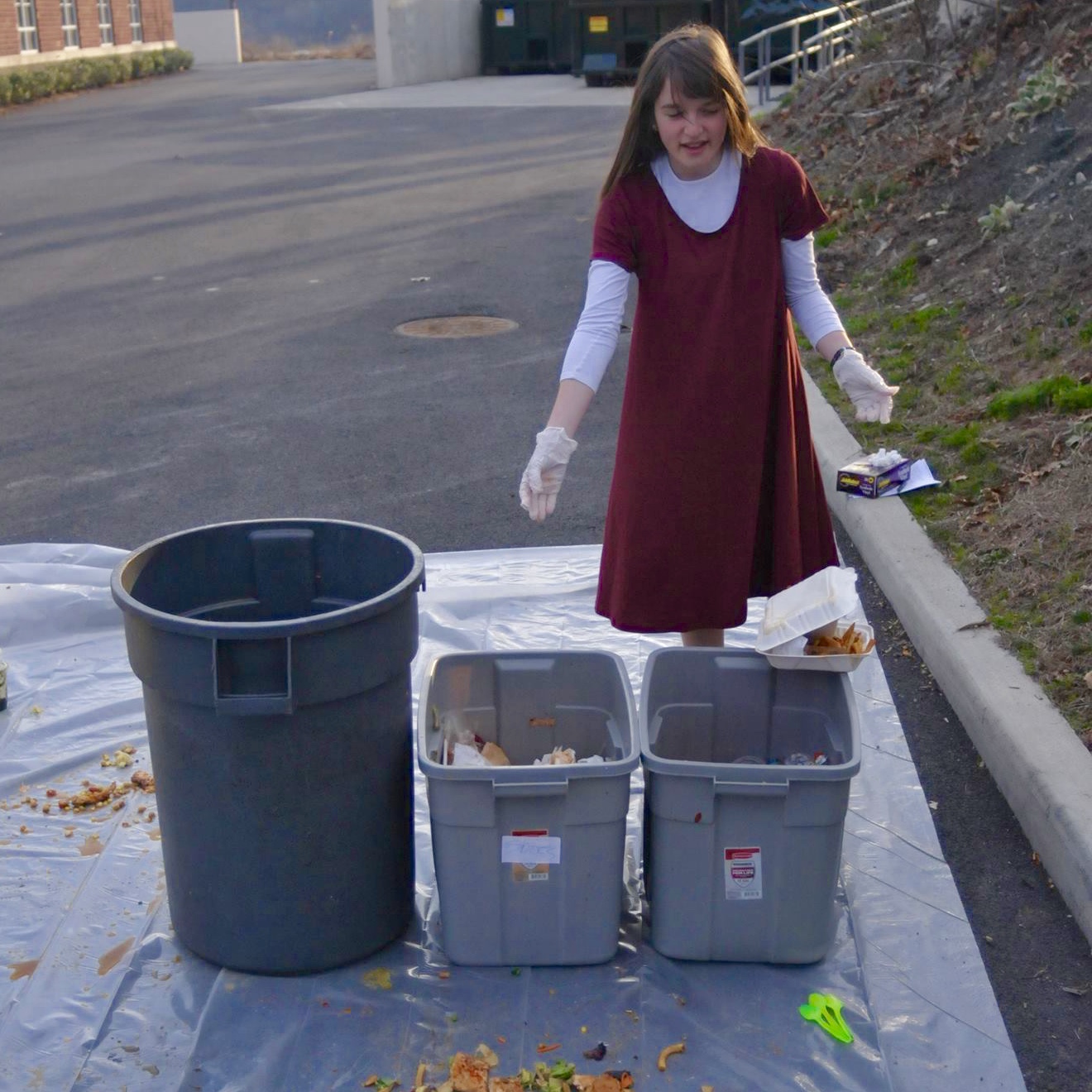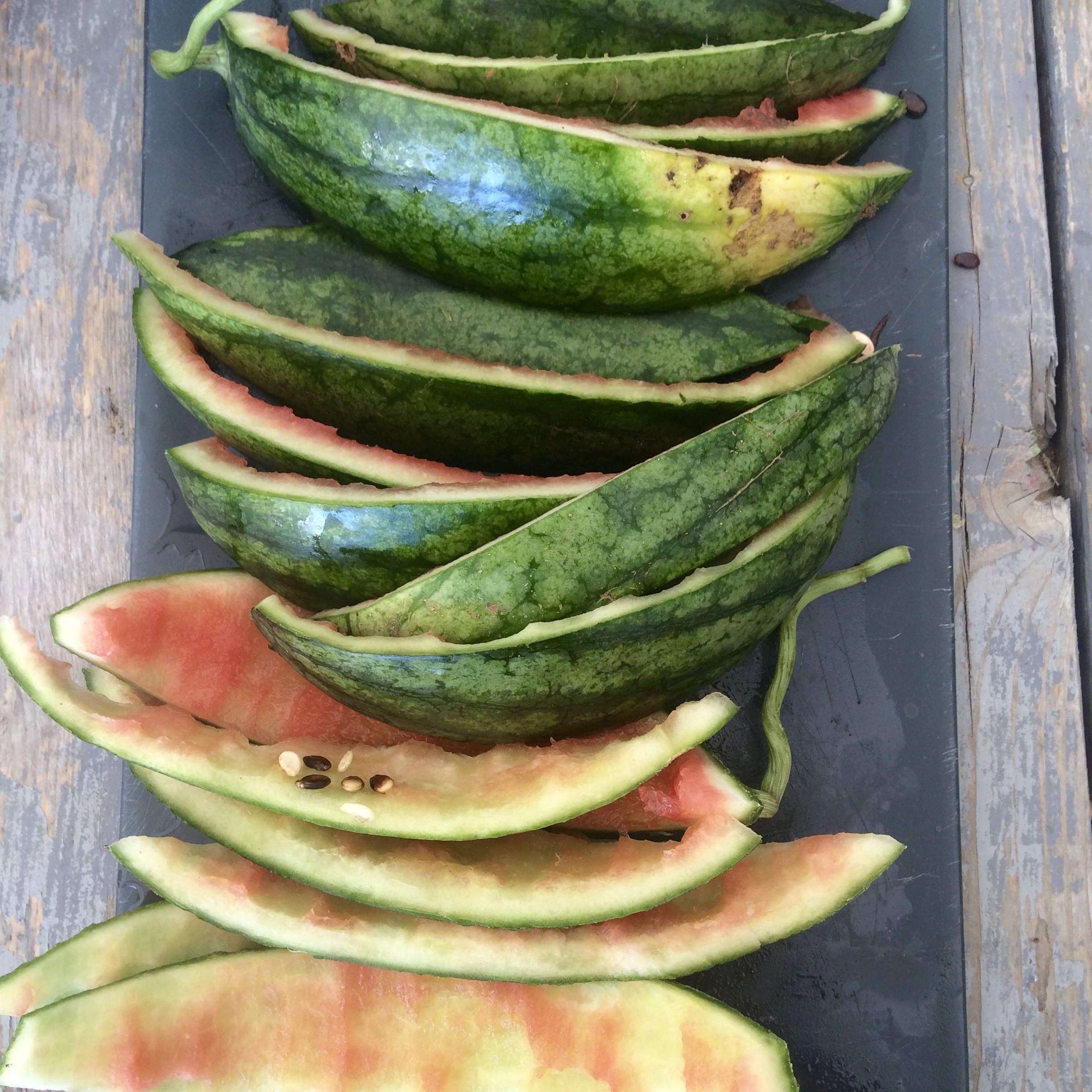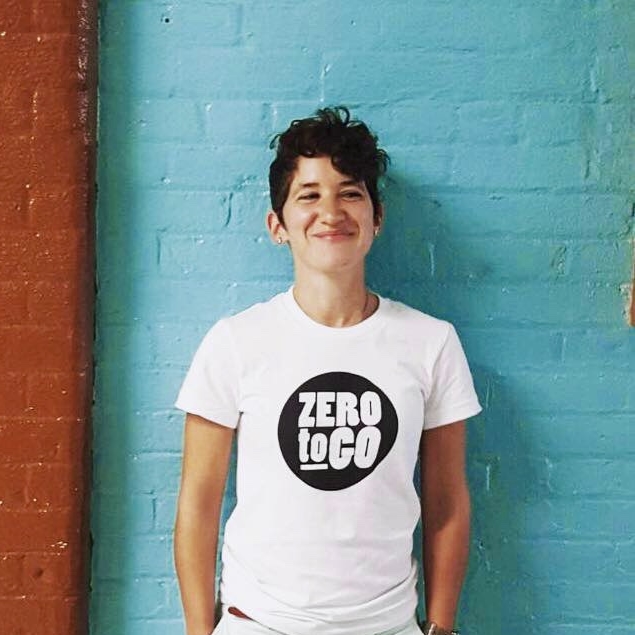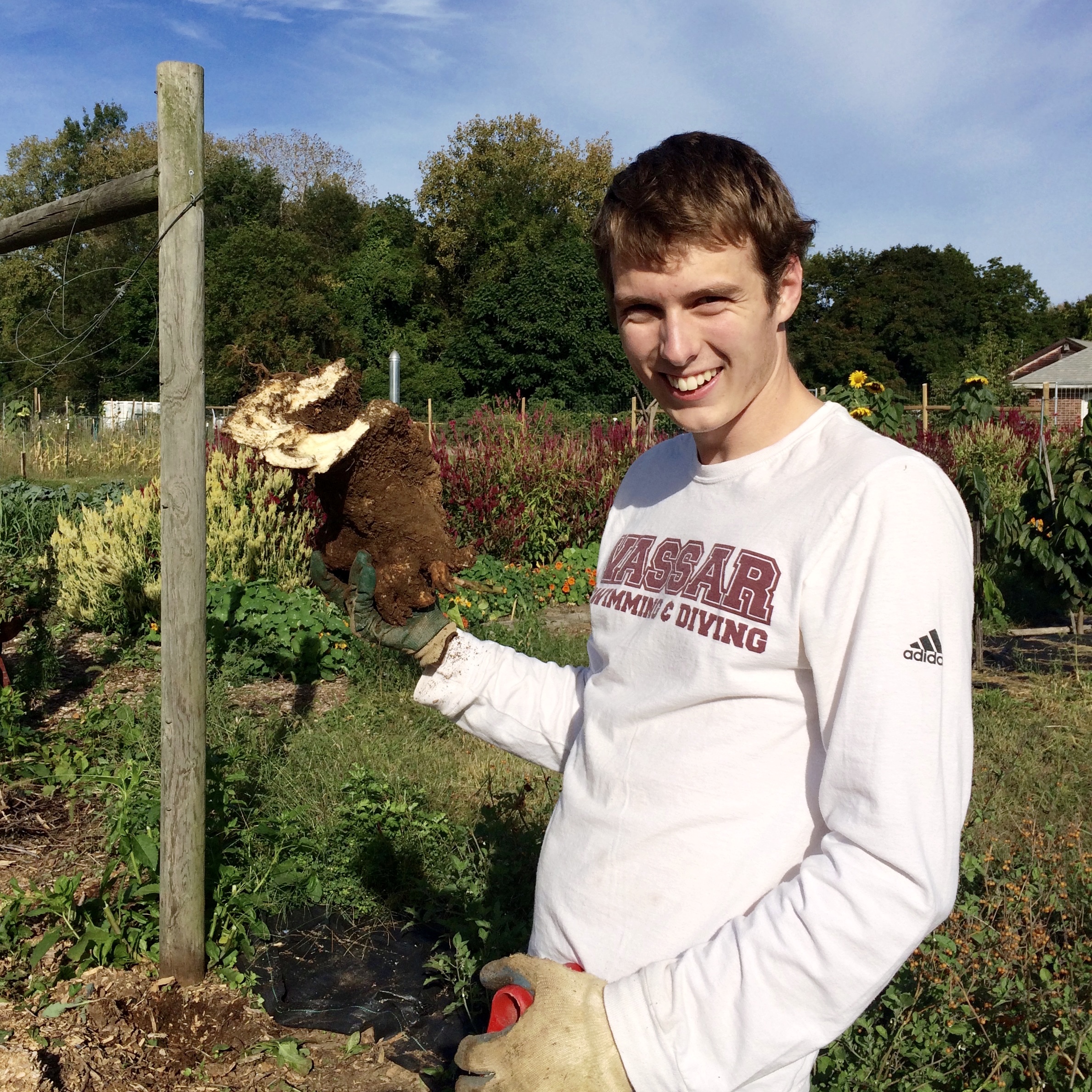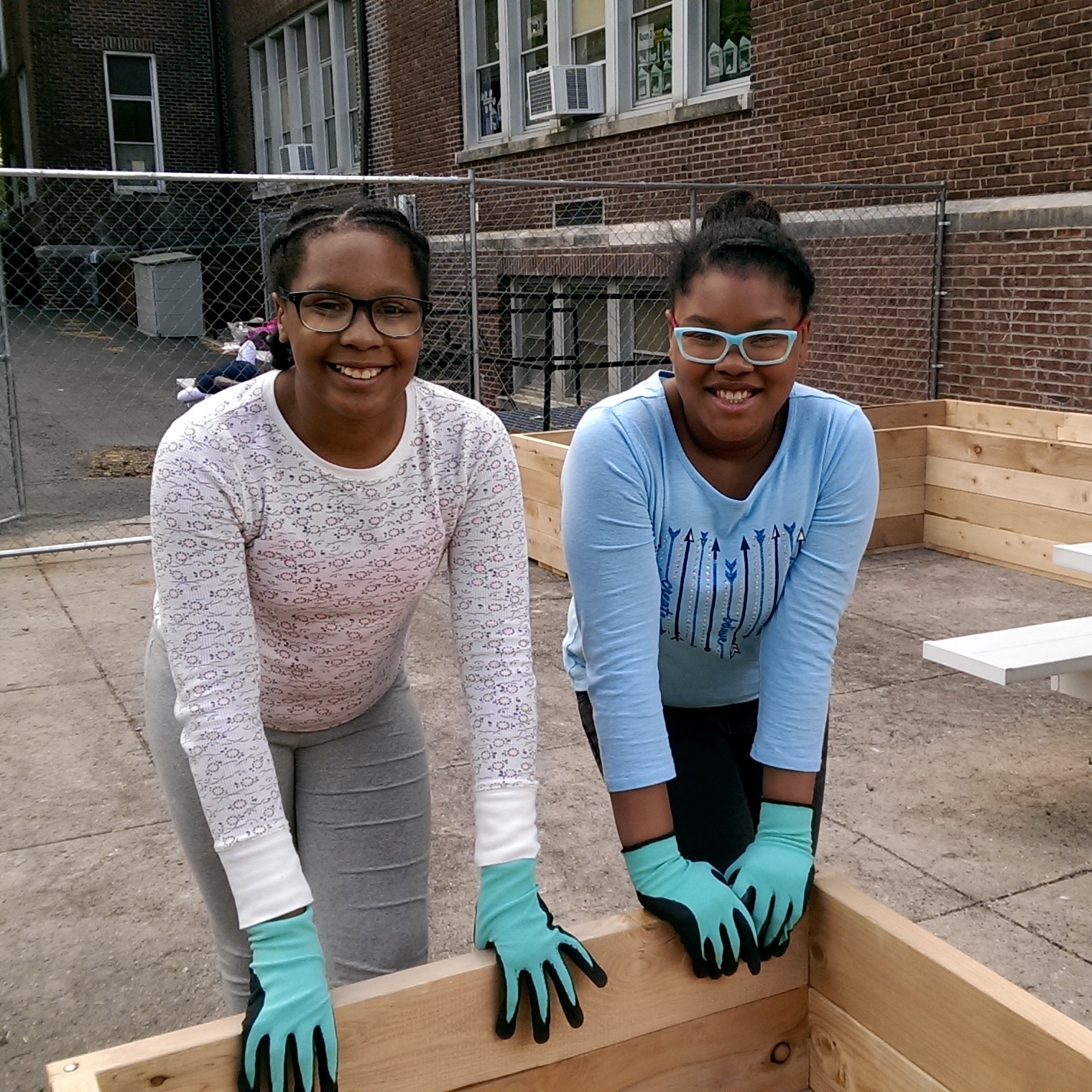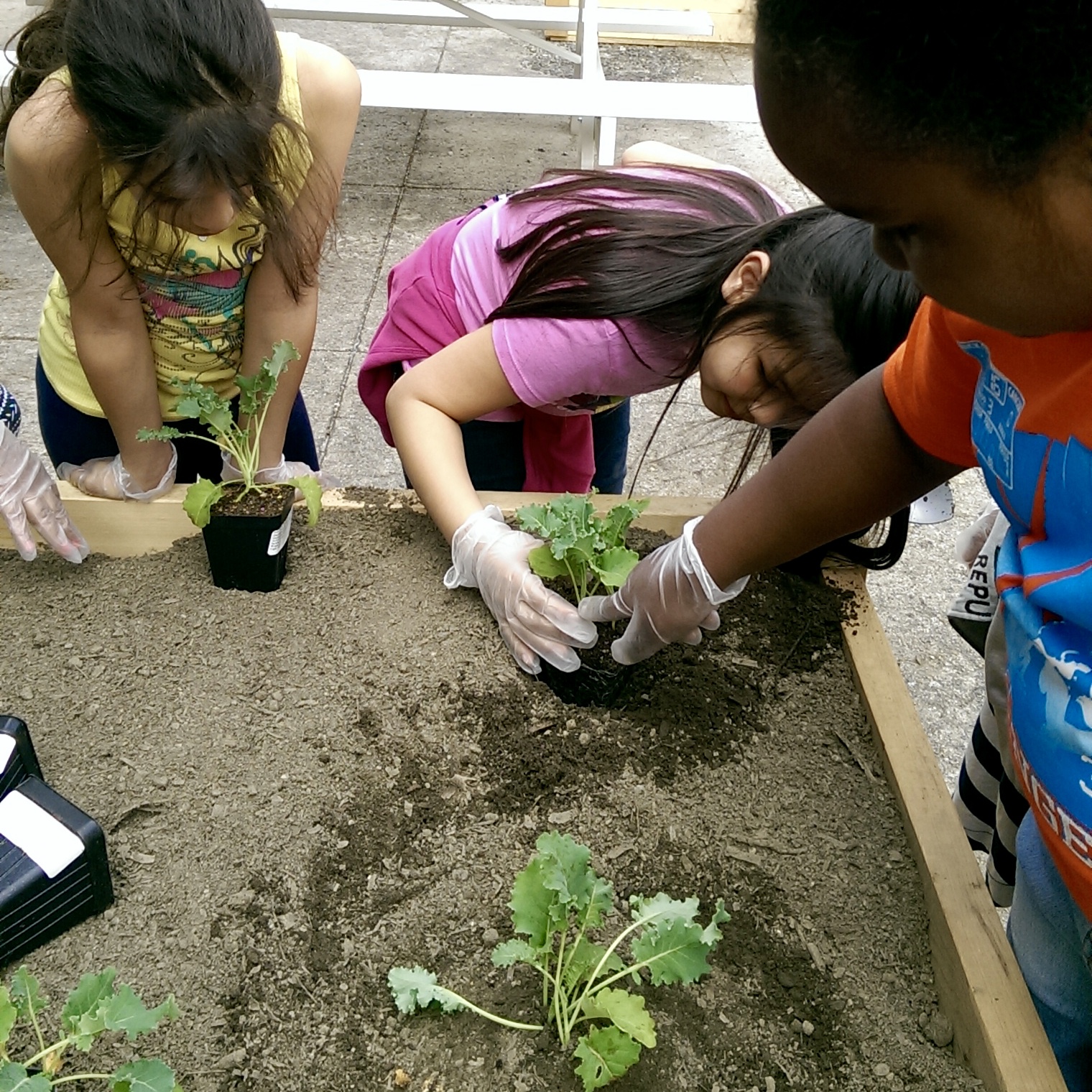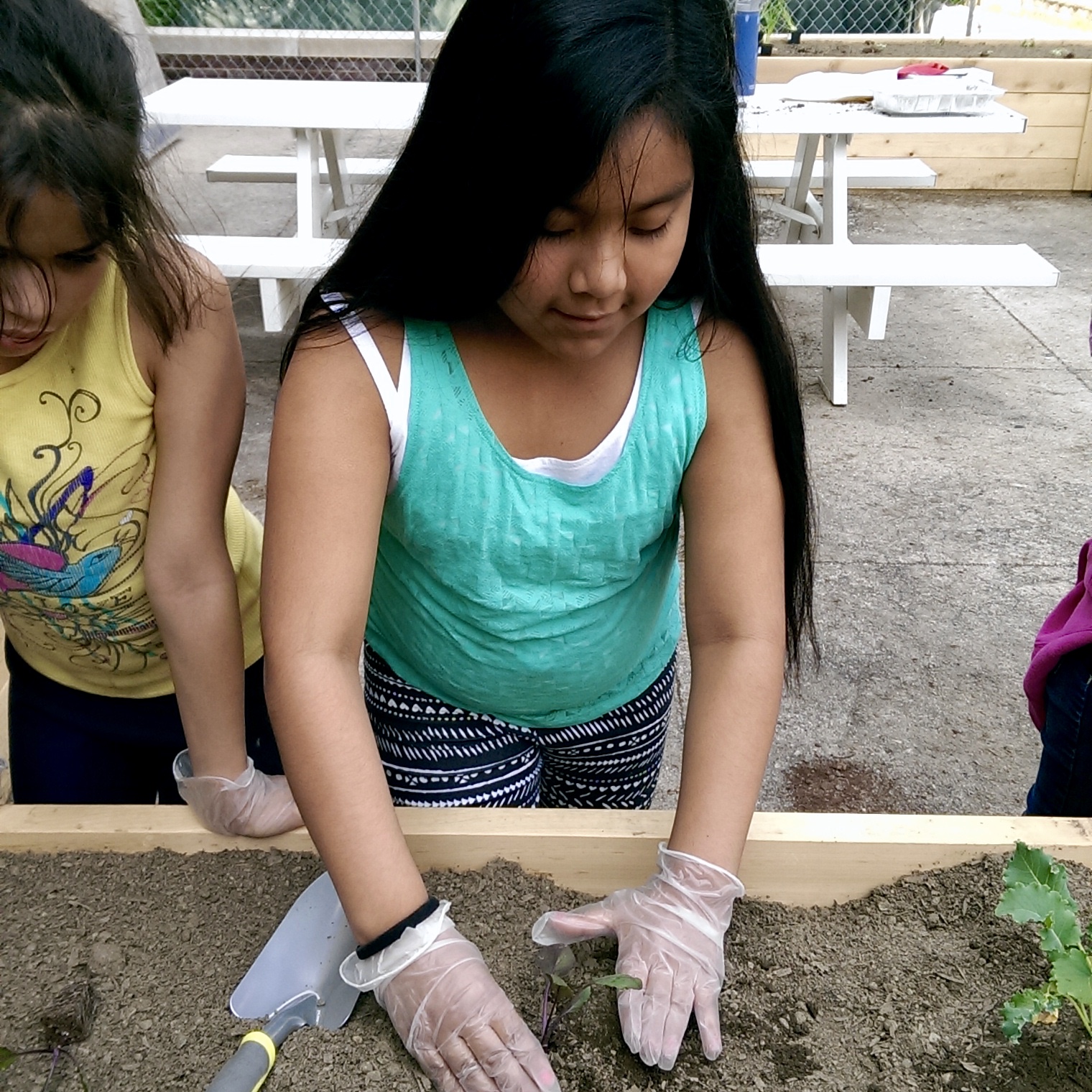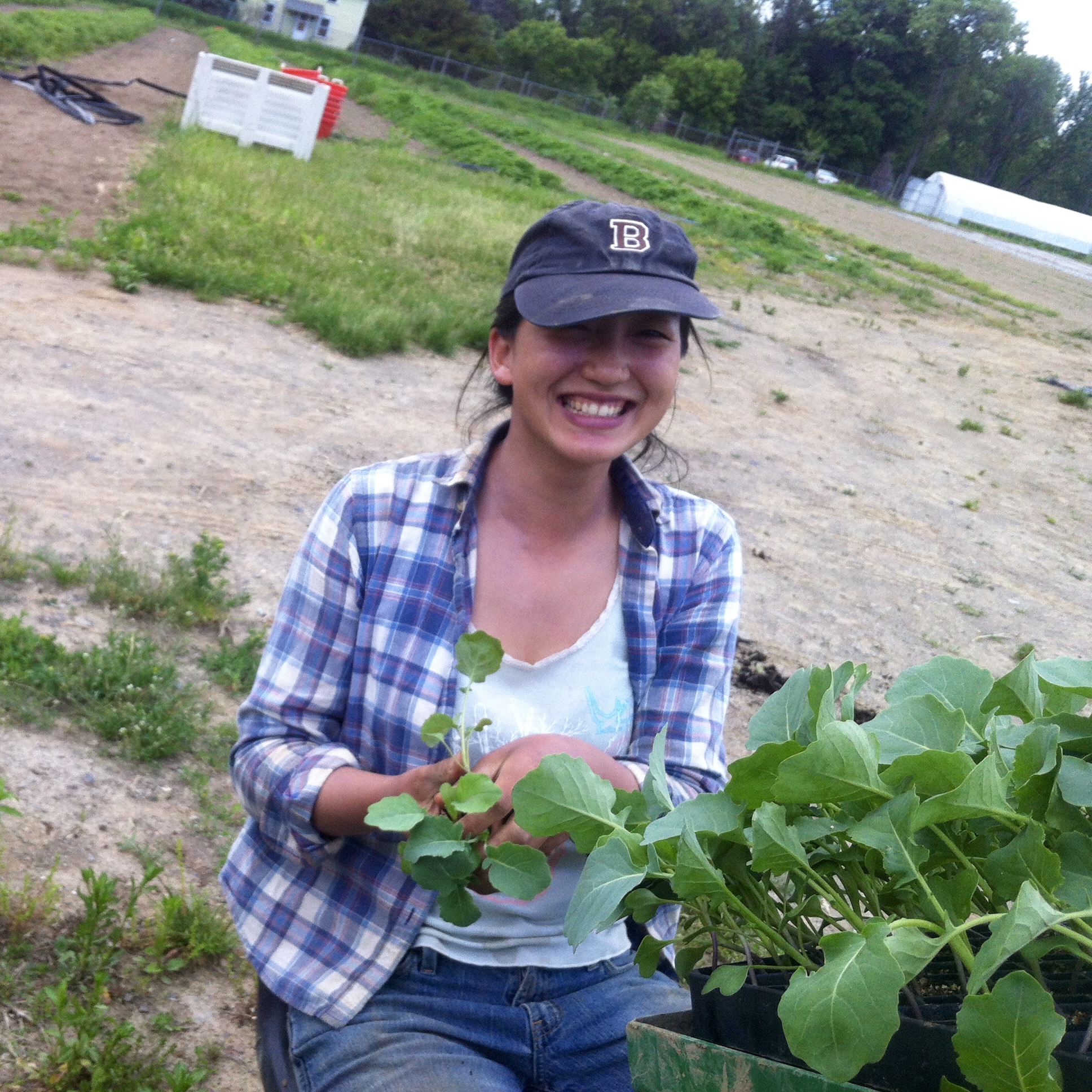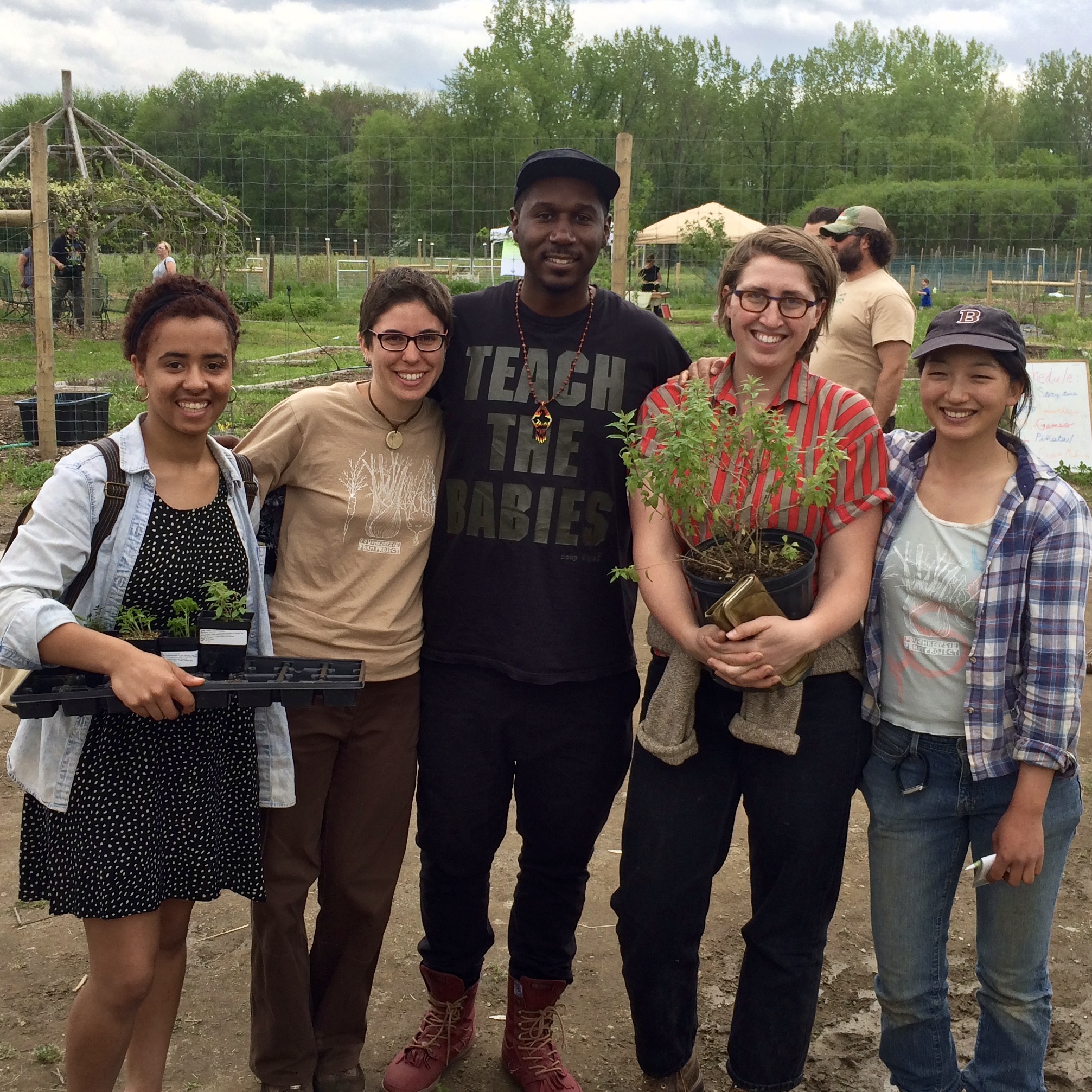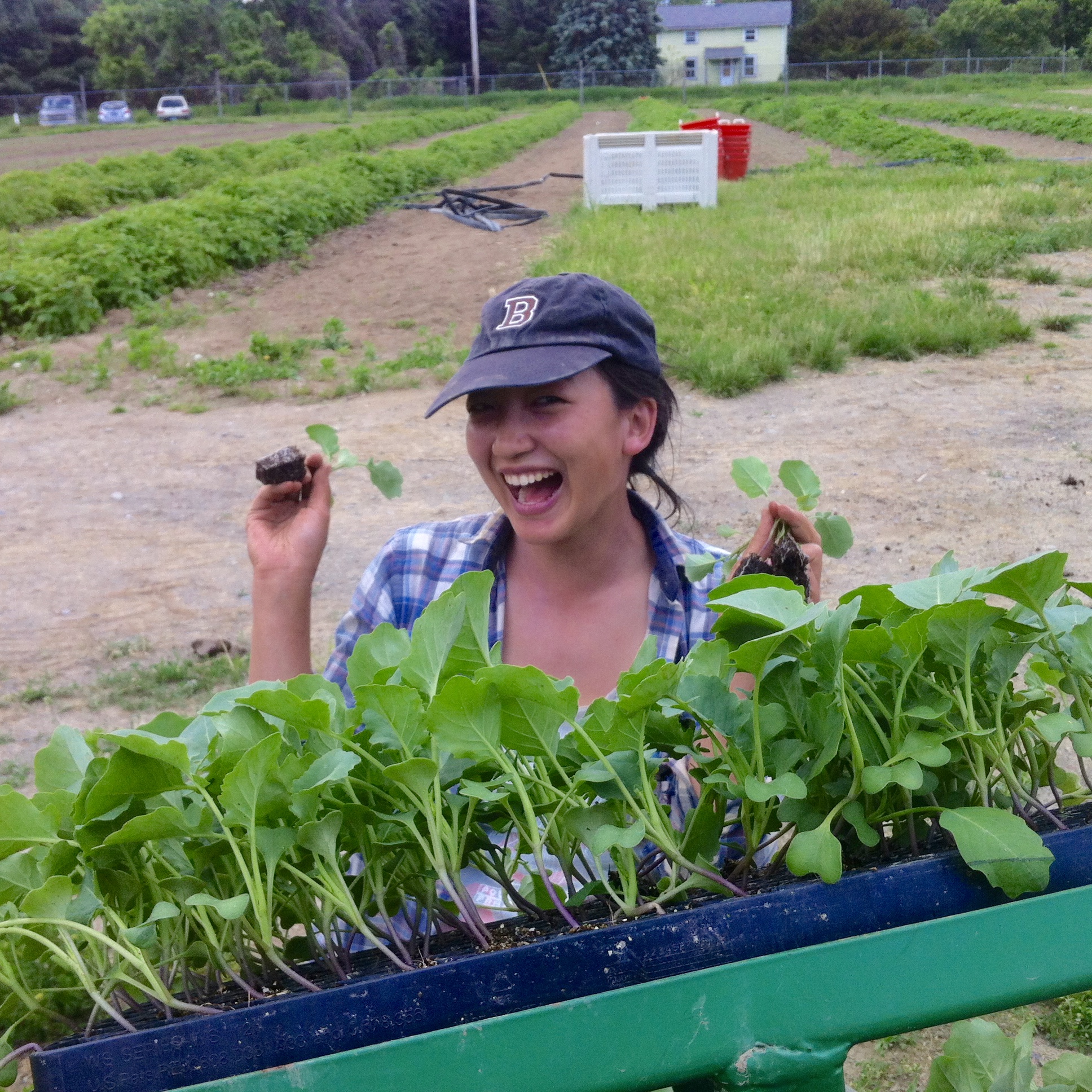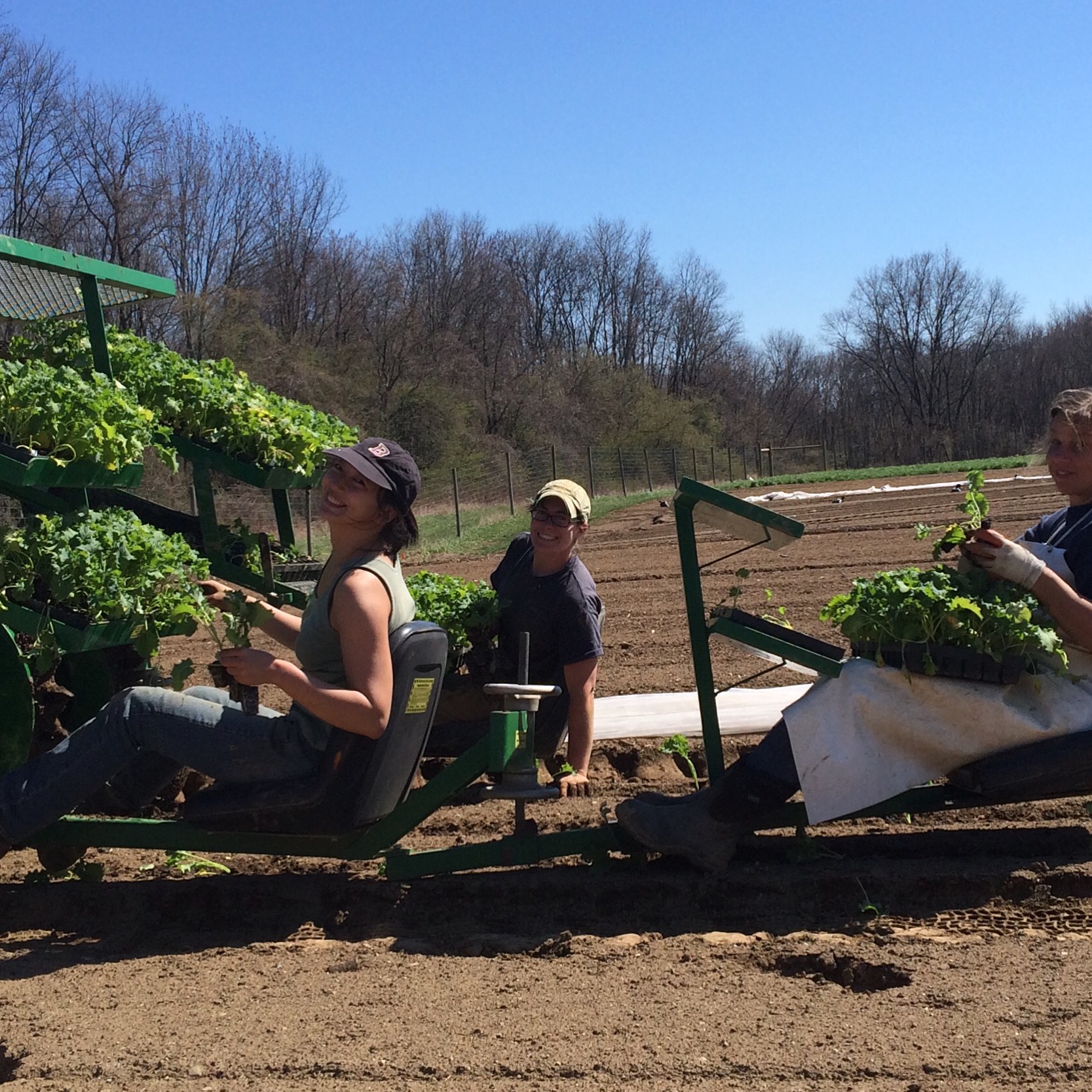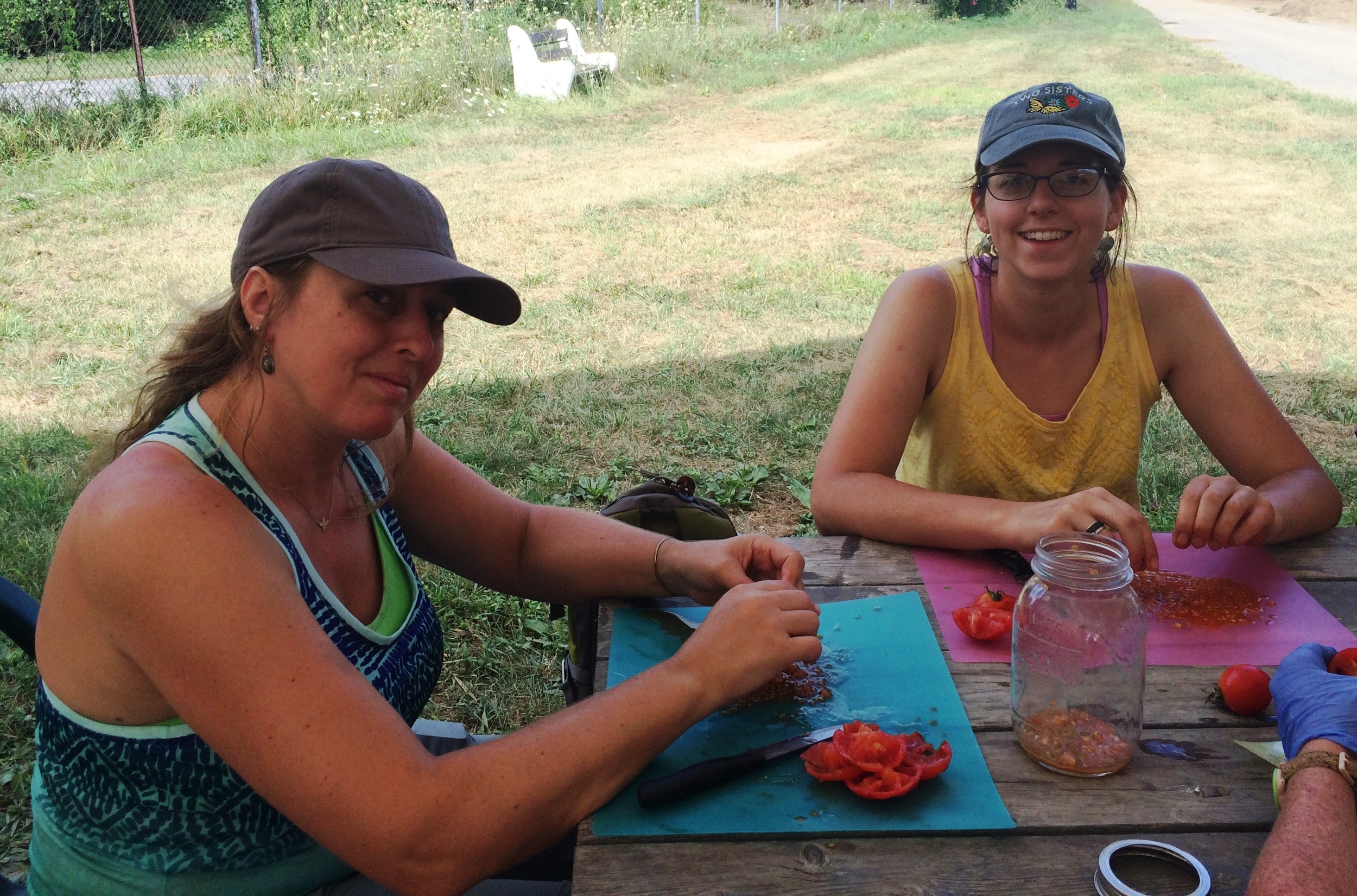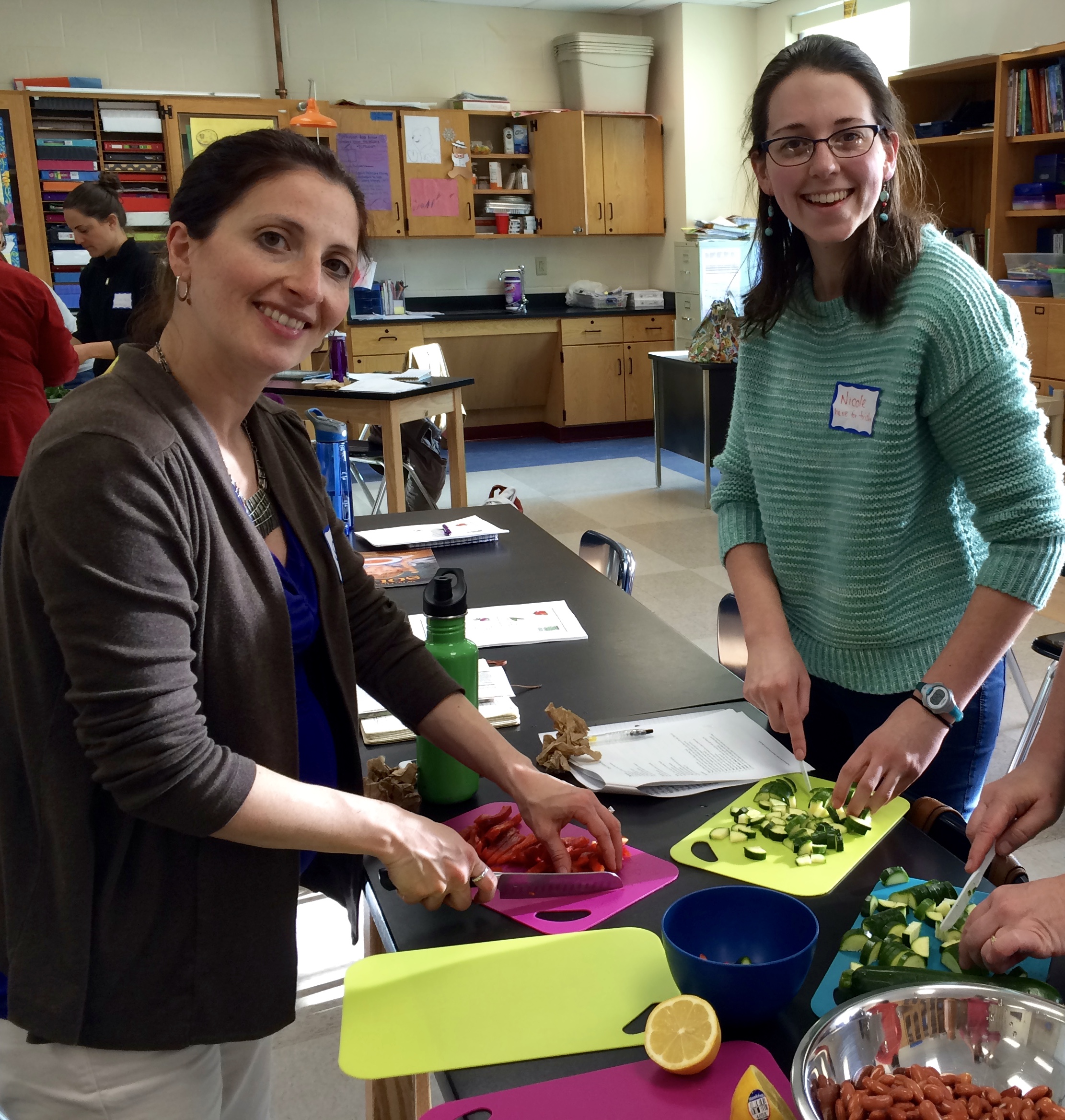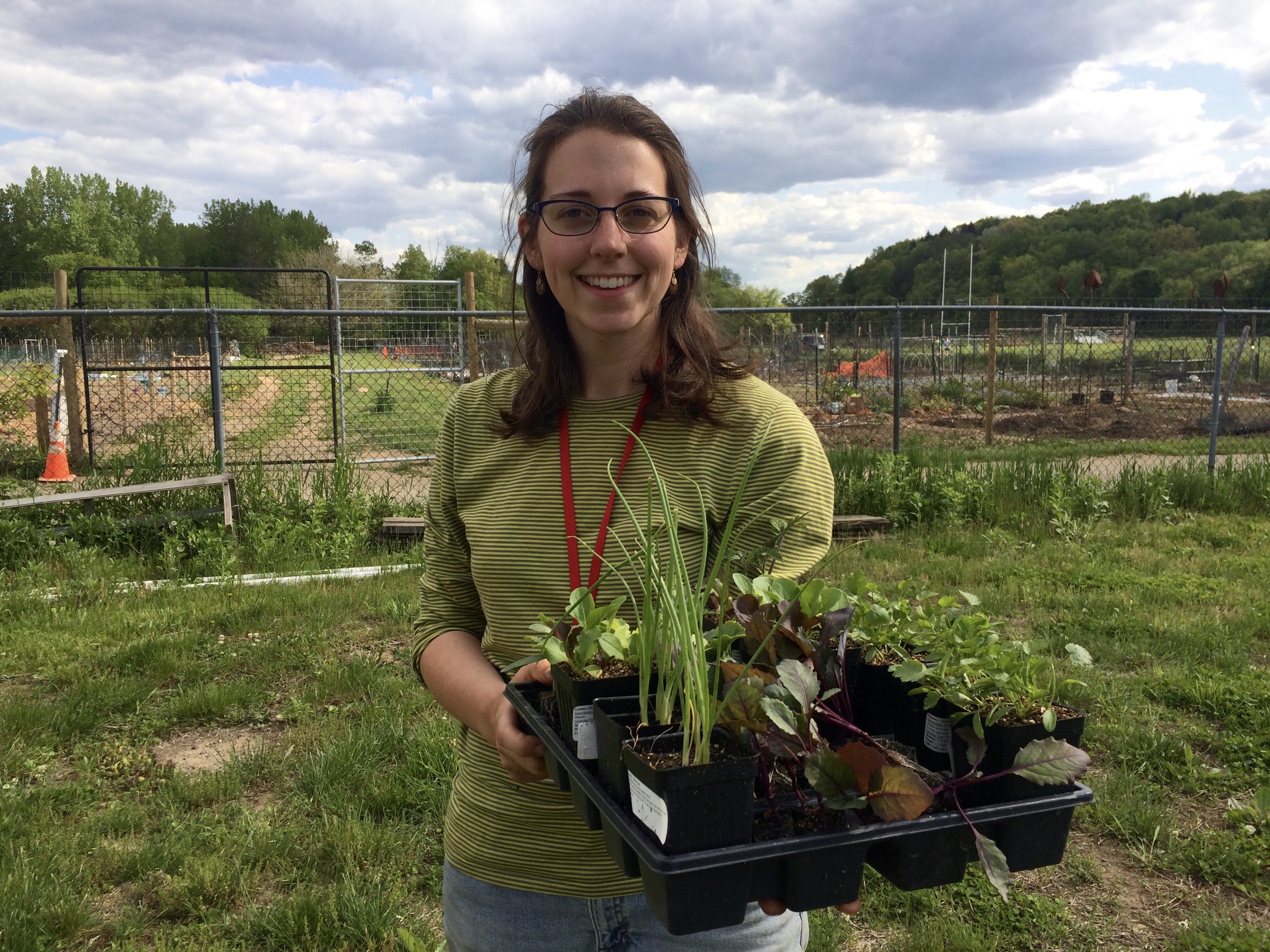By Elizabeth Brooks
One of the most exciting things about being an education intern is the constantly changing schedule. I was an education intern at PFP for five weeks this spring, and we did something different every day. So much is always going on at PFP; there’s always something new to do and learn. Even though there is a lot of variation in our daily schedule, here’s what a typical day might look like.
June 3, 2016
6:30 – Normally, I arrive at the farm at around 7:30-8:30, but today is a Friday, so we want to make sure to catch the weekly field walk led by our farm director, Leon, which starts at 6:30. I’ve learned a lot about plants and farming as an intern, but there’s always more to learn so this morning walk is really helpful –and a great way to ease into the day.
On our walk around the farm, Leon shows the farm apprentices and interns what needs to be harvested for distribution and what other tasks are most urgent. He also tells us some interesting facts about the plants on the farm, like how it’s important for broccoli to be dome-shaped so water doesn’t pool on it and how asparagus plants store energy in their roots before winter so they can grow again in the spring.
7:30 – It looks a little overcast, but we water the Discovery Gardens anyway. We also weed a little and do a few other small tasks to keep it well-maintained. Since the garden is new this spring, we have spent a lot of time working on building and maintaining it, and it’s really starting to come together.
8:30 – A 5th grade class from Warring Elementary School is arriving at 9:30 for a farm visit, so we get ready to lead them on a tour of the farm and make a kale salad together.
9:30 – The class arrives, and we take them around the farm to talk about some of the different plants and strategies the farmers use to grow organically. We also harvest some strawberries, kale, and radishes to use in our salad, but have to cut our tour a little short because it starts pouring. To escape the downpour, we take all of the students under the tent and start making our kale salad. Before interning at the PFP, I never thought kids could ever get excited about eating vegetables, but my time here has definitely proved me wrong! When it’s time to eat the salad, many of the students say they love the salad, and others offer ideas about how to change it to make it even better. We end the farm visit in the meditation garden so the students can try lemon sorrel and other culinary herbs.
11:30 – After the class leaves, we wash the dishes and discuss how the visit went during our lunch break.
12:30 – We spend some time picking strawberries in the fields to save for education programs in the winter. Even though there won’t be anything growing, the education program continues to lead workshops and other activities throughout the winter. We freeze the strawberries so that they last until winter.
1:30 – We spend the last hour of the day weeding some of the asparagus on the farm. Once in awhile, we do some work on the farm, which is always a nice change from being in the education garden.
2:30 – Since we came in at 6:30, we leave at 2:30. I go home covered in dirt and pretty tired, but excited to come back in on Monday.





